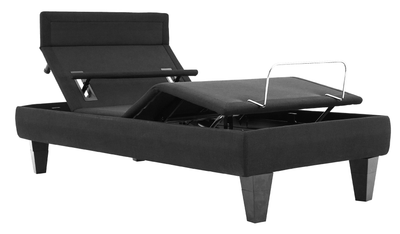How Often Should You Replace Your Mattress?

Your mattress plays a huge role in how well you sleep. But like all things, it doesn’t last forever. Over time, it can lose its support and comfort, affecting your rest and even your health. The big question is, how often should you replace your mattress?
The answer depends on a few factors, including the type of mattress, how you use it, and how well you take care of it. While most mattresses last between 7 to 10 years, there are signs to watch for that may mean it’s time for a new one. Let’s break it down.
How Long Do Different Mattresses Last?
Different mattresses also age differently. The material and construction determine how long you can expect yours to stay in good shape.
-
Memory foam mattresses usually last between 7 and 10 years. Mattresses made with high-density foam often stay in good condition longer compared to those with low-density foam.
-
Innerspring mattresses typically last for about 7 to 8 years. However, if the coils begin to sag, the lifespan may be shorter.
-
Hybrid mattresses, which combine foam and coils, can last anywhere from 7 to 10 years. The overall durability depends on the quality of the materials used.
-
Latex mattresses are known for their durability and can last up to 15 years or more. This makes them one of the longest-lasting mattress types.
-
Adjustable mattresses, particularly air mattresses with adjustable settings, usually last around 6 to 8 years. The longevity often depends on the quality of the air pump and other mechanisms like the adjustable beds.
What Affects Mattress Longevity?
Quality of Materials
Better materials equal a longer-lasting mattress. A cheap mattress might save money upfront, but it can wear out quickly, costing more in the long run.
Usage and Care
Regular maintenance like rotating your mattress, using a mattress protector, and keeping it clean can extend its life. If you often eat, work, or allow pets on the bed, it might wear out faster.
Your Body Weight and Sleep Position
Heavier individuals or those who sleep in one spot tend to cause mattresses to sag sooner. Side sleepers may notice wear faster because of concentrated pressure on the hips and shoulders due to their sleeping position.
How Do You Know It’s Time to Replace Your Mattress?

Visible Damage
Take a close look at your mattress. Do you see sagging spots where the surface dips down? How about lumps or areas that feel uneven when you press on them? If these problems are present, your mattress isn’t supporting your body the way it should. Sagging or deep impressions often mean the materials inside have worn out. When your mattress doesn’t hold its shape, you’ll feel less comfortable and more achy after sleeping.
Sleep Problems
How are you feeling when you wake up? If you’re stiff, sore, or still tired after a full night of rest, your mattress might be the problem. A mattress that no longer offers proper support can make your body work harder while you sleep, leading to discomfort in your neck, back, or hips. If your sleep has become restless or you’re waking up frequently, it could be a clear sign your mattress isn’t doing its job anymore.
Allergies or Odors
Mattresses can become a home for dust mites, mold, and allergens over time. Even if you clean regularly, these tiny particles can build up inside the mattress, especially if it’s older. If you’re sneezing more at night, waking up with itchy eyes, or noticing a musty or unpleasant smell in your bedroom, your mattress could be the culprit. These issues don’t just affect comfort—they can impact your health.
Age of Your Mattress
Even if your mattress looks fine on the outside, it still has a lifespan. Most mattresses should be replaced after 7-10 years, depending on the type and how it’s been used. Over time, the materials inside wear down, and your mattress won’t provide the support and comfort you need. Replacing your mattress within this timeframe ensures better sleep, less discomfort, and a cleaner sleeping environment.
Why Replace Your Mattress Regularly?
Better Sleep Quality
A supportive mattress helps you stay comfortable through the night, so you wake up feeling refreshed. If you’re struggling to rest well, it may be time to find the best mattress for your needs. A good mattress provides proper alignment and support, which can make a significant difference in how you feel every morning.
Improved Health
A worn-out mattress can lead to poor spinal alignment, back pain, and even respiratory issues from dust and allergens.
How to Make Your Mattress Last Longer

Keep It Clean
Vacuum your mattress regularly to remove dust and debris. A clean mattress is a healthier mattress.
Use a Mattress Protector
A waterproof protector guards against spills, stains, and allergens, keeping your mattress in better shape for longer.
Provide Proper Support
Make sure your mattress has a sturdy base or bed frame to prevent sagging. A personal comfort mattress offers adjustable firmness, giving you the perfect support every night.
Final Thoughts
Your mattress is more than just a place to sleep. It affects your comfort, health, and how you feel every day. Paying attention to signs of wear and replacing your mattress on time can make a huge difference. When it’s time for a new one, choose wisely and take care of it to get the most out of your investment.
FAQs
How often should you replace your mattress?
Most mattresses need replacing every 7-10 years, but it depends on the type and how it’s used.
Can a mattress last longer than 10 years?
Yes, especially latex or high-quality foam mattresses. Proper care can also extend the life of any mattress.
What type of mattress lasts the longest?
Latex mattresses are the most durable, often lasting 15 years or more.
How can I tell if my mattress is causing my back pain?
If your back pain improves after sleeping somewhere else, like a hotel or a friend’s house, your mattress might be the issue.
Is it worth spending more on a mattress?
Yes, a high-quality mattress can last longer and improve your sleep, making it a worthwhile investment.







Leave a comment